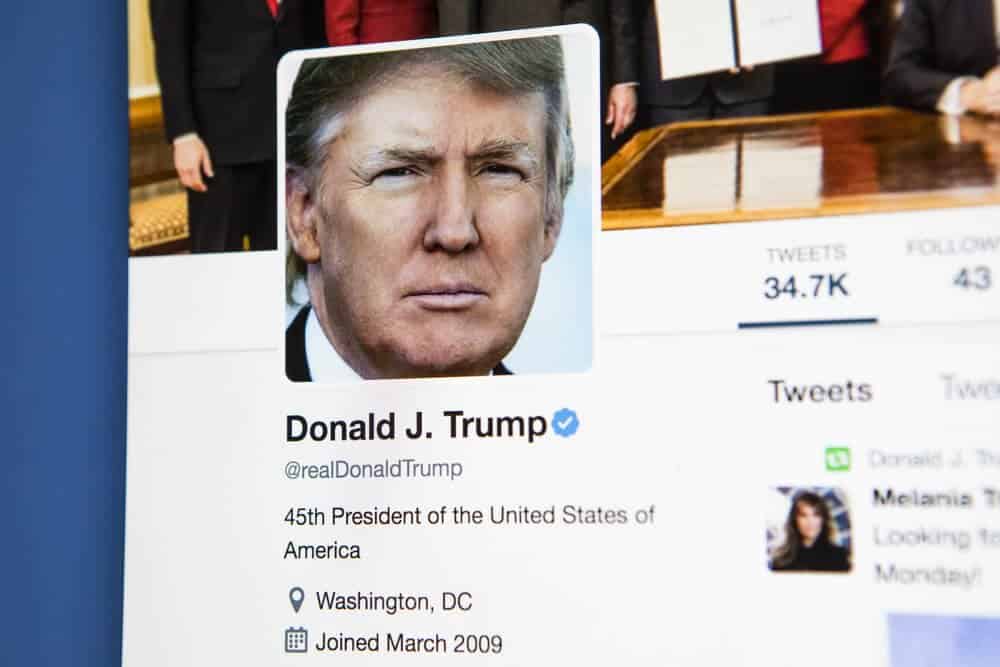In July 2017, the Knight First Amendment Institute at Columbia University represented seven people in a lawsuit against President Donald Trump for blocking them on Twitter. The plaintiffs include a journalist, a Texas police officer, and a surgeon. One plaintiff said that there are around 150 verified Twitter accounts and hundreds more unverified ones that have been blocked by Trump.
This means that Trump won’t see their tweets and replies. Blocked users won’t see Trump’s activities on Twitter either. All because they posted critical comments against Trump.
For instance, Holly Figueroa O’Reilly said that Trump blocked her after she posted a series of critical comments to Trump’s tweets. One of which was a GIF that showed Pope Francis side-glancing at the president, with a caption, “This is pretty much how the world sees you.”
The president has over 59.9 million followers on Twitter and has more than 41,500 tweets since he started the account in 2009. The president is an active Twitter user; he posts several times a day to announce several things that are happening in the White House and the country in general.
Federal judge ruling
Judge Naomi Reice Buchwald ruled that the president violated the U.S. Constitution, particularly the First Amendment, when he blocked certain users and prevented them from seeing any of his tweets and voicing out their opinions to him. Twitter has tools that help fight trolls and abuse, but blocking someone can be done even when the user isn’t a troll or not being abusive.
“This case requires us to consider whether a public official may, consistent with the First Amendment, ‘block’ a person from his Twitter account in response to the political views that person has expressed, and whether the analysis differs because that public official is the President of the United States,” Buchwald said. “The answer to both questions is no.”
Jameel Jaffer, the executive director of Knight Institute, said in a statement, “We’re pleased with the court’s decision, which reflects a careful application of core First Amendment principles to government censorship on a new communications platform.”
He added, “The President’s practice of blocking critics on Twitter is pernicious and unconstitutional, and we hope this ruling will bring it to an end.”
Katie Fallow, a senior staff attorney at the Knight Institute, said, “The First Amendment prohibits government officials from suppressing speech on the basis of viewpoint … The court’s application of that principle here should guide all of the public officials who are communicating with their constituents through social media.”
The president was represented by the Justice Department who argued that the @realDonaldTrump account is the president’s personal platform and not an extension of the federal government. Because of this, the president is free to choose who gets to see his tweets without violating the First Amendment.
The U.S. government’s appeal on Trump’s behalf
The government’s response to the federal court ruling was to unblock the seven plaintiffs and file an appeal with the United States Court of Appeals for the Second Circuit.
In the oral argument that was heard on March 26, 2019, judges asked the Justice Department lawyers why Trump’s blocking of Twitter users is not a violation of the First Amendment when the act “subtracts from that discussion points of view the president doesn’t like.”
In response to this, Justice Department lawyer Jennifer Utrecht stated that while the president’s tweets are official government statements, President Trump is acting in his private, unofficial capacity when he chooses to block followers from his personal Twitter account.
Judge Peter W. Hall responded that the lawyer from the Justice Department was representing the president instead of a private lawyer because the president is not a private individual.
“If the court were to hold that this kind of blocking is beyond the reach of the First Amendment, that would have implications far beyond this particular context,” Knight Institute executive director Jaffer said. “It would seemingly apply to the @POTUS and @WhiteHouse accounts as well. It would probably apply to every government website that has a space for public comment. I think you would be opening the door to manipulation and distortion of those spaces.”
Similar Court of Appeals case ruling
This isn’t the first time that the Court of Appeals had encountered the same issue. We can only wonder if they will discuss buying Twitter followers at a future point in time.
The U.S. Court of Appeals for the Fourth Circuit had unanimously ruled in January 2019 that Phyllis Randall, chair of the Loudoun County Board of Supervisors, violated the First Amendment when she banned a critic from her Facebook page.
The court ruling can impact the Second Circuit’s decision on Trump’s case and future cases.

